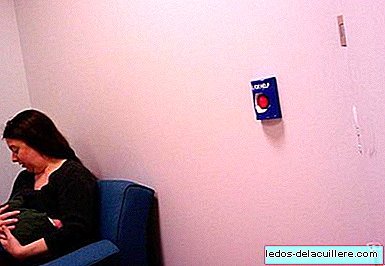
People who have food intolerances and allergies, often encounter serious Obstacles when making the weekly purchase: reading labels becomes an adventure, and they often miss very valuable information.
Experts say that in the last 15 years, cases of allergic and intolerant have doubled, among them there are many children, so the issue should be treated with much more sensitivity in general.
The Eroski Consumer publication wanted to know the difficulties encountered by those affected (and their families) when making the purchase, as well as when eating out. To this end, more than 1100 people who suffered one of these ailments (or both) have been interviewed, or who were in charge of family members who suffered from them. First, it has been found one in five respondents feel that they cannot usually make the purchase with total security in any establishment and 37% only sometimes. Moreover, one in four think that products are never properly labeled. Buying is tedious and difficult and they demand information as detailed and readable as possible.
In the survey it is clear the distrust and insecurity of the participants when buying and eating out.
Eating out is a health risk for three out of five respondents. And it is that when ordering the menu more than half of the respondents think that in hospitality you never take the necessary precautions: warn about the possible presence of allergens in the dishes, detail the ingredients in their menus and menus, avoid cross contamination in the storage and handling of products, and have exclusive work tools for children's menus. Hence, they require more training in the field of hospitality in food allergies and intolerances.
Buy more expensive and precautions when eating out
90% of respondents believe that the shopping cart of an allergic and food intolerant is more expensive than a person without these diseases. The intolerant people believe it to a greater extent (92% of them versus 86% of the allergic interviewed). They give even an average estimate: 46% more expensive. You buy more in supermarkets and hypermarkets.
Two out of three interviewed by Eroski Consumer believe that having an allergy or food intolerance conditions them when eating out, and three out of five think it poses a risk to their health, especially for children under 10.

Both allergic and intolerant of all ages fear that the harmful ingredient is not excluded from the dish despite requiring it and that cross contamination occurs at the time of making the dish. And they add a fear that is emphasized when talking about children under 10, or people between 10 and 19: that medical help does not arrive on time or that nobody around him knows how to act in case he has a reaction.
Among the precautions taken are the avoidance of fast food establishments, Asian, Italian, Mexican, and buffet. When the decision is taken to go outside, more than half of the respondents who reserve before, explain their illness to the establishment staff
It is also usual that the descriptions of the dishes are read, and that the ingredients contained in the dishes are checked with the waiter.
Of course, and especially with allergies, the possibility of ingesting the allergen due to a confusion with the label or a lack of care by the staff of the establishment, is a risk to avoid at all costs. It is said that society is gradually becoming more sensitive to these health problems, although (as Silvia told us in this interview), there is still a lot to do.
Images | Ari Helminen, eyeliam Source | Eroski Consumer Full Report On Peques and More | A major problem for Spanish allergy sufferers is that the origin of the lactose used in food and medicine is not specified. Can allergies be prevented in children?












